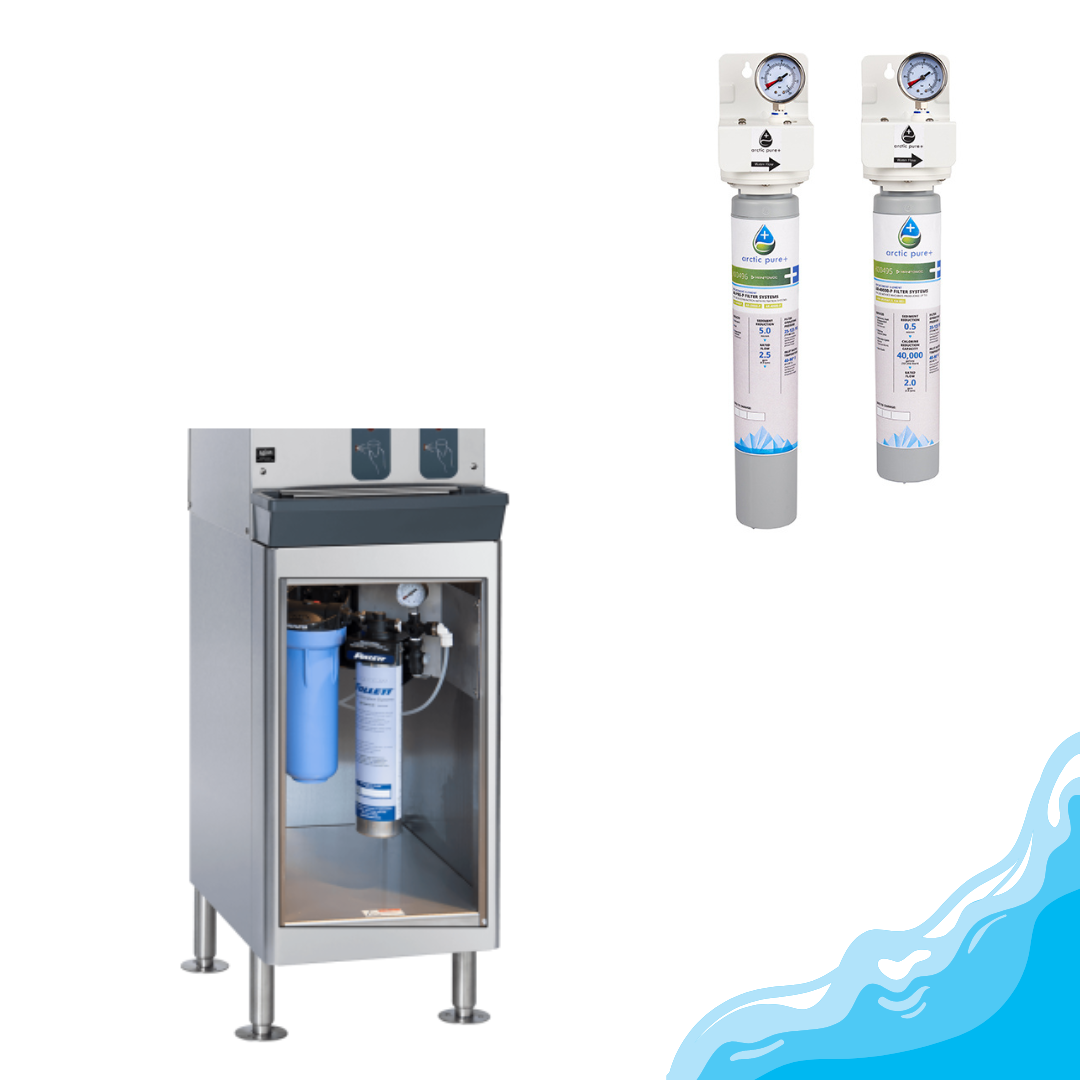Jun 16th 2022 - Monica Cunanan
Ice Machine Water Filter — How often should you change it?
Ice machines can greatly benefit from an ice maker water filter because it can improve the quality of the ice by removing contaminants like sediment, chlorine, bad taste, odor problems, and bacteria. Besides making the ice clearer and taste better, ice machine water filters can also help prevent many appliance efficiency-related issues.
How Often Should Ice Machine Filters Be Changed?
Depending on your water use, supply, and quality of ice; you should replace your filters every six months.
Important Notes Before Replacing Ice Machine Filter
Even though a water filter can help reduce and prevent machine failures due to limescale deposits and sediments, routinely cleaning your ice machine should still remain a priority. With regular filter replacement and cleaning, your ice machine can continuously operate at peak performance. You can avoid major problems and even minor problems that require troubleshooting.
If you find your ice machine freezing up or beeping, you may need to clean it already. You can also try troubleshooting or resetting.
- You should know what kind of water condition is in your area before buying a new water filter. The mineral and particulate content of the water in your area will affect which type of water filter you need.
- Take note of what micron rating and flow rate are appropriate for your ice machine.
The Different Types of Ice Machine Water Filters
Ice makers use one of three different types of water filters.
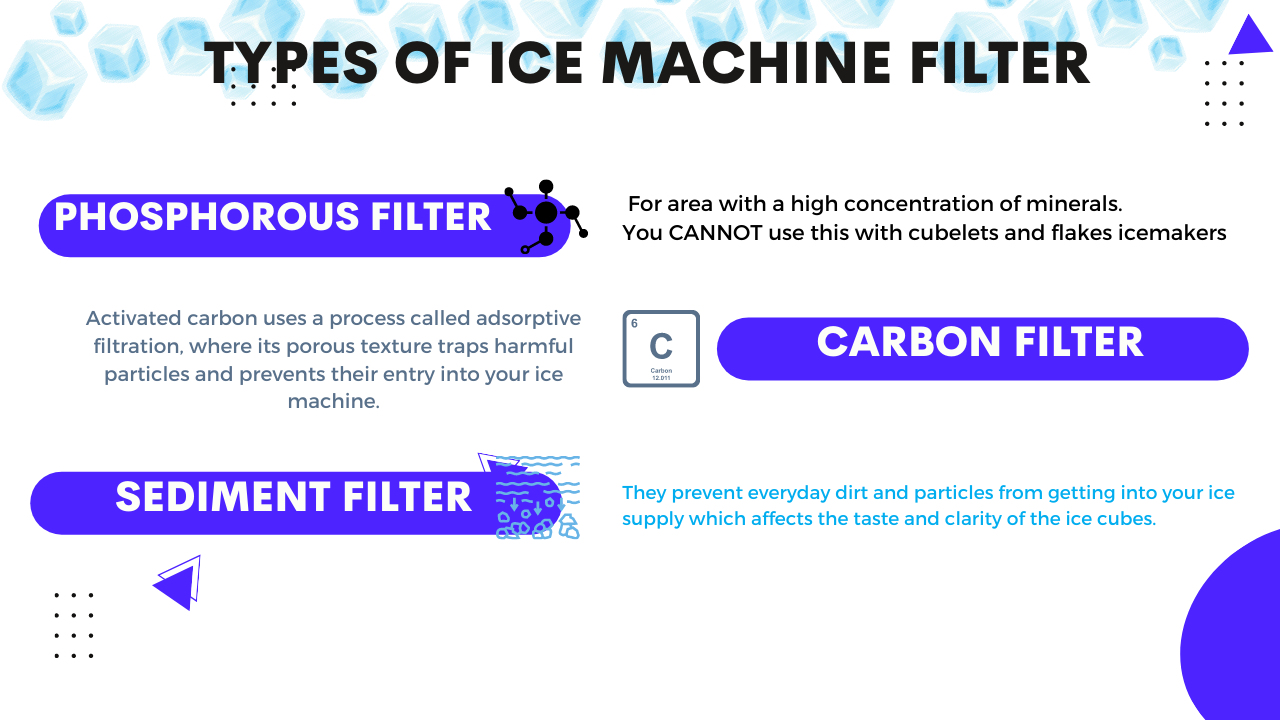
Sediment Filters
Sediment filters are standard types of filters you’ll find almost everywhere. They prevent everyday dirt and particles from getting into your ice supply which affects the taste and clarity of the ice cubes.
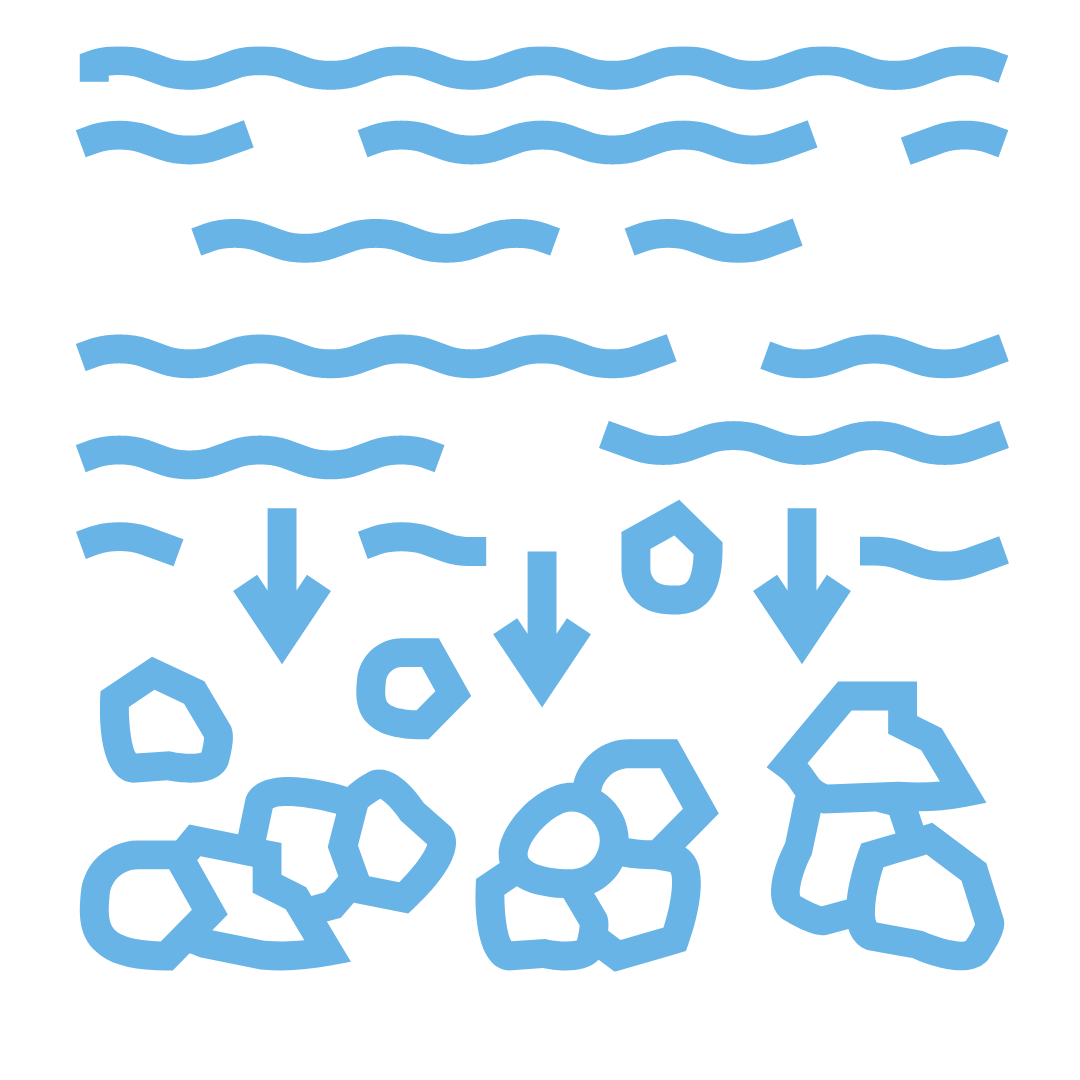
Take note of the two stats: the micron rating and the flow rate.
The micron filter's micron rating tells how big the particle the filter allows to pass through it. Let's say the particle of dirt is 10 microns and you have a 5-micron filter. The filter will not let the speck of dirt in the system while letting through smaller particles less than 5 microns such as water particles, leaving you with dirt-free water.
This size filter prevents most dirt and minerals found in normal tap water from entering the drinking water system. A sediment filter is an all-around good option for preventing most larger particles. However, they don't filter out hard water deposits or chlorine very well. Depending on your water use, supply, and quality; you should replace your sediment filters every six months.
Phosphate Filters
If you're installing a machine in an area with a high concentration of minerals, a phosphate filter works best. Scale is a type of impurity that can clog standard water filters and cause trouble for some ice machines components like evaporator plates, float sensors, and water-cooling condensers.

Phosphate filters help prevent scale and help produce clearer water, by dispersing phosphate molecules into your ice maker’s water supply.
Phosphate is unsafe to consume; it can lead to gastrointestinal problems at high enough levels. Fortunately, standard commercial ice machines that produce square, circular, or dice-shaped cubes won't produce ice with phosphates in them because only the purest water freezes into an ice cube, while the phosphorous-laden water flows down the drain.
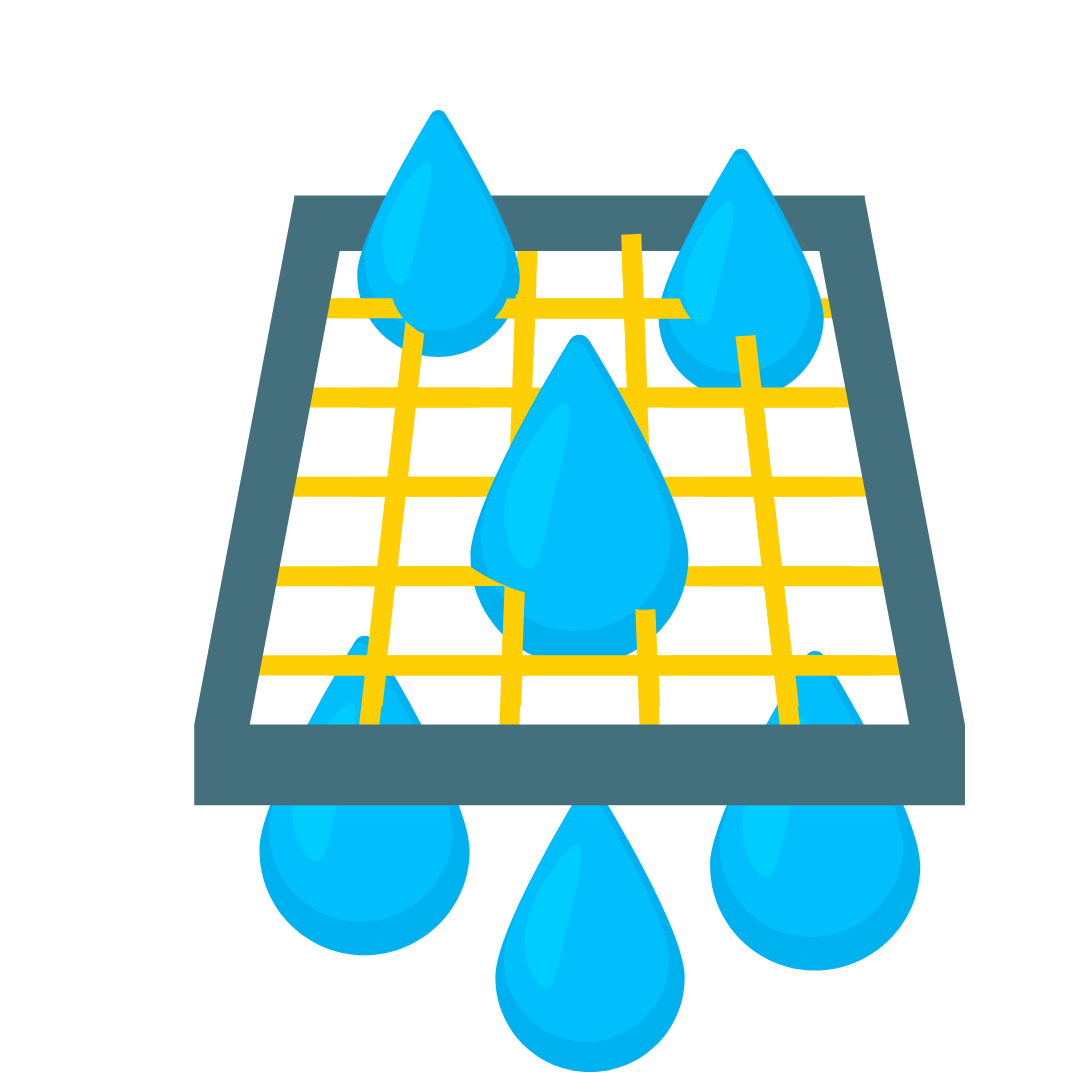
On the other hand, cubelet and flake ice machines use an auger system to create hard, crunchy ice by collecting all the liquid, freezing it, and then grinding it up before dispensing it. You should never use a phosphate filtration system with these types of industrial ice makers.
Just like sediment filters, you should look to replace your phosphate filter every six months.
Carbon Filters
Since you can't use phosphate filters on cubelets, flakes icemakers, carbon water filters are a good alternative.
Charcoal filters are probably one of the most ancient forms of water filttering, as ancient Egyptians found out that storing water in charcoal containers made better-tasting, clean, odor-free water.
Activated carbon uses a process called adsorptive filtration, where its porous texture traps harmful particles and prevents their entry into your ice machine.

As with most water filters, around six months is a good time to replace your carbon filter.
What is Flow Rate and Why Does it Matter?
Another important factor you should consider is the flow rate. An ice machine water filter is rated at 5 GPM (gallons per minute), then the filter will allow 5 gallons of water to pass through it every minute.
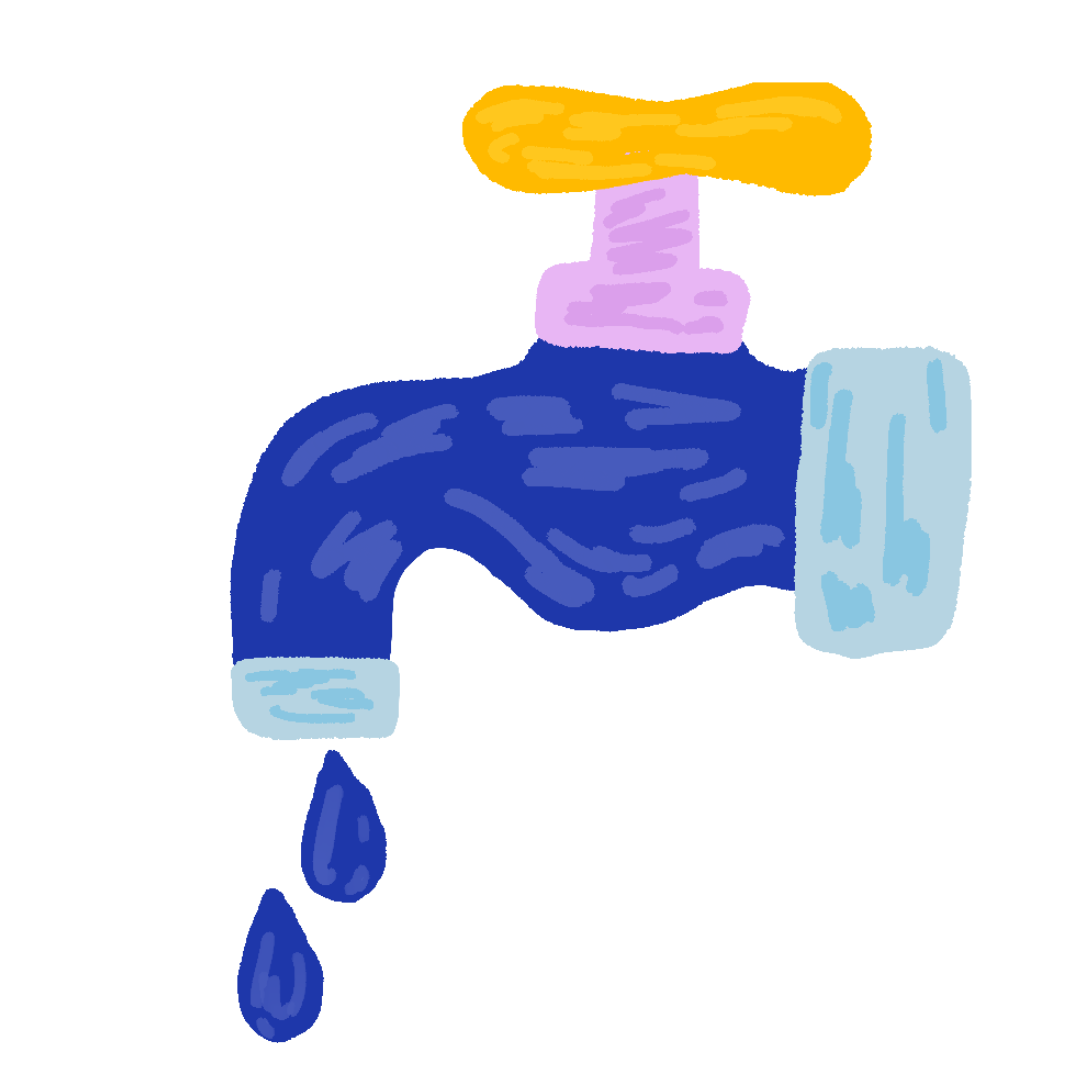
To ensure the safe production of ice, you must use the correct size commercial ice machine water filter according to your specific ice maker model requirements. An undersized water filter will limit the amount of filtered water entering the unit, which can result in small, malformed ice or damage to the ice maker.
If you change your water filter every 6 months, you can help ensure that your ice machine gets a supply of cleaner water to produce clear, great-tasting ice.
Importance of Ice Machine Water Filters
If you don't have a water filtration system, then you need to get one to avoid operational issues caused by the contaminants present in tap water. Ensuring that you supply clean water to your ice machine will prevent this.
Limescale is probably the biggest threat to any appliance that uses water. Limescale can build up inside ice machines just like it can build up inside water pipes. Lime scale can disrupt the ability of your ice maker to make ice and operate at its best.

Limescale buildup can also lead to the buildup of bacteria, while bacteria sediment found in tap water can cause your faucet to clog. Chlorine from water can cause corrosion, making the water taste or smell bad.
A water filter system installed into your ice maker can:
- Prevent unexpected failures by reducing the occurrence of corrosion, sediment buildup, or scale build-up.

- Reduces chlorine-related corrosion and eliminates the chlorine taste and smell and clears the appearance of water.
- Reduce maintenance costs associated with scale buildup on evaporator plates.

- Prevent clogging issues in solenoid valves caused by sediments in distribution tubes.
- Keep bacteria from growing within your ice machine.
Regularly cleaning your ice maker and replacing its filters and ensuring that you always have the cleanest water can help extend the life of your ice maker and keep it running at peak performance.
How Do Ice Machine Water Filters Work?
Like refrigerators that have built-in water filters that easily snap into place, some ice machines also come with built-in filtrations systems. With some models, the water supply line that connects to your ice maker has a filter installed on it. These are the so-called inline water filters.
Is it worth it?

Water quality issues can lead to energy inefficiencies, costly repairs, unscheduled maintenance, and unexpected downtime. These issues can be avoided by using water filters.
They're easy to replace, come in a variety of sizes, and offer reliable filtration against common water contamination issues, so they're worth considering.
These filters ensure premium quality water for ice machines, coffee makers, or coolers. They also reduce operational costs, extend the life of your appliances and prevent unexpected breakdowns.



